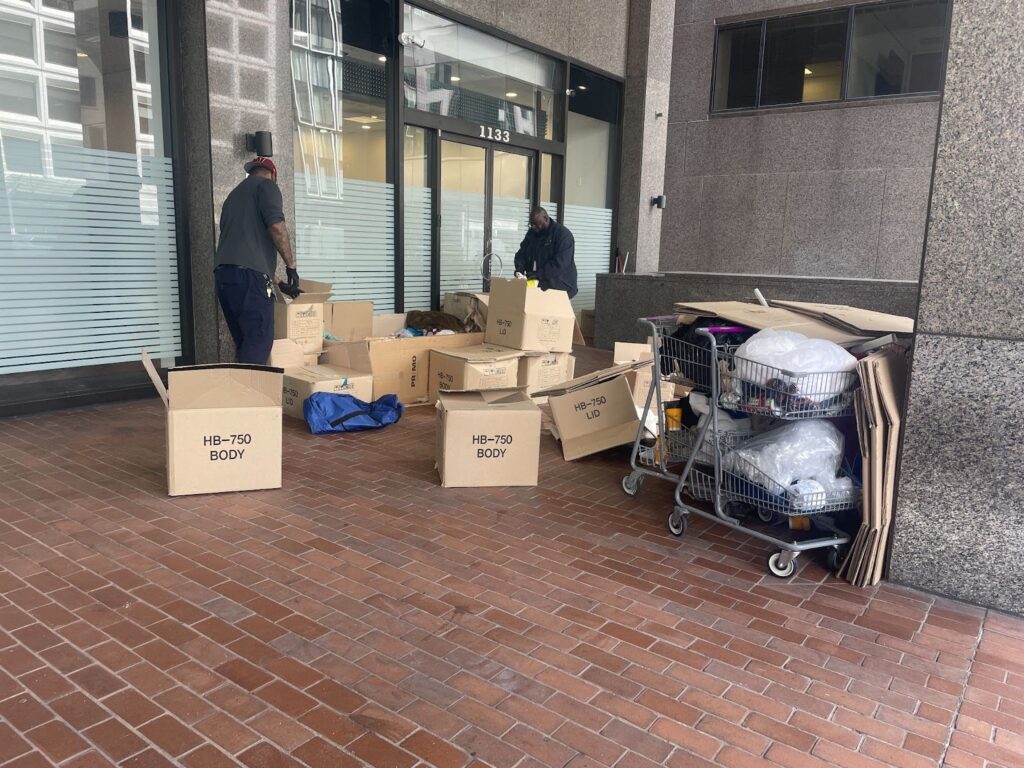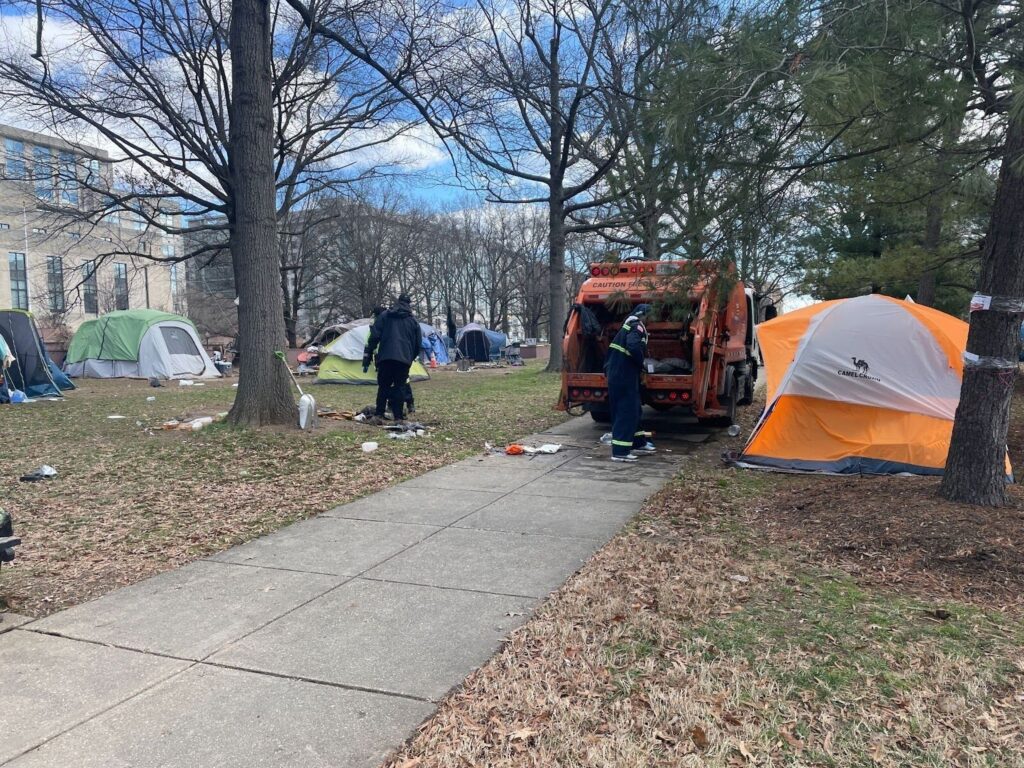On May 7, as Street Sense went to press, city officials and homeless advocates continued to weigh the future of three significant and controversial amendments to the city law that governs the District’s homeless services system.
The amendments proposed by District Mayor Vincent Gray and contained in the city’s Fiscal Year 2014 Budget Support Act would help ease shelter crowding and move homeless individuals and families toward self-sufficiency, city human services officials say.
But the potential changes to the city’s Homeless Services Reform Act have raised concerns among homeless advocates, who say that because of their possible impact upon vulnerable individuals and families, more time is needed to consider them.
Under the amendments:
• Clients in some city shelters and transitional housing programs would be required to place a portion of their incomes into savings or escrow accounts;
• Families refusing to accept two offers of rapid-rehousing assistance could be terminated from shelter or supportive housing programs; and
• Shelter placements for families would
be offered on a “provisional” basis only to those with no alternative, such as relatives or friends. Parents would work with city human services staff to find alternatives to a long term stay in a hotel or in the city’s overwhelmed family shelter at the former D.C. General Hospital.
“We’ve got 600 kids still over at DC General and hundreds more at hotels,” said DC Department of Human Services (DHS) Director David Berns. “That is no way to grow up.”
If passed, the amendments would save $5.3 million that DHS could divert to other homeless programs, according to department documents. If the amendments do not pass, however, DHS warned it would have no choice but to close three emergency shelters – New York Avenue men’s shelter and John Young and Nativity women’s shelters – during all but the coldest months of the year.
Berns acknowledged the provisions could be seen as “somewhat controversial.” But he defended them as making good sense and good use of limited resources.
Many homeless families residing in shelters are also beneficiaries of Temporary Assistance for Needy Families or TANF. Under the mandatory escrow amendment they would be required to put 30 percent of their income into savings for the day when they leave the shelter system so “one flat tire or one broken window” does not begin a downward spiral back into homelessness, Berns said.
As for the requirement that families accept offers of rapid-rehousing or face the loss of shelter, Berns said that under the current system, “we have a terrible time getting people to accept” short-term rental assistance under the city’s rapid rehousing program. They are hoping instead for a permanent housing subsidy, Berns said. Seeking to allay fears, he noted that more than 90 percent of District families served by rapid-rehousing have not returned to the homeless system.
Berns also defended the provisional placement approach to offering shelter. Housing a family at DC General costs the city $50,000 a year, he said. At that rate, we can put three or four in their own apartments.”
But homeless advocates who spoke out at a May 3 city council hearing on the Budget Support Act expressed deep worries about the changes.
Marta Beresin, a staff attorney at the Washington Legal Clinic for the Homeless, praised goals such as moving families out of shelter and into housing.
But she said the amendments, as currently drafted, run afoul of laws protecting the homeless and disabled because they remove the right of clients to appeal the appropriateness of rapid rehousing placements, allow the city to terminate family shelter placements on short notice and legalize termination from housing due to institutionalization or incarceration.
She asked the city council to withdraw the amendments from the Budget Support Act “due to serious concerns about the lack of community input and the high risk of serious and unintended consequences to both providers and participants in shelter and supportive housing programs.”
Another witness, Kate Coventry, a policy analyst at the DC Fiscal Policy Institute, joined Beresin in commending the goal “to move to a homeless services system that serves families with children year round and that minimizes the length of stay in emergency shelter.”
But she also agreed with Beresin that the amendments should be removed from the Budget Support Act.
“The changes deserve careful consideration and stakeholder input through the normal legislative process,” Coventry said.
City Council member Jim Graham, chair of the council’s human services committee, also expressed concerns about the potential impact of the changes and the need for more time to consider them.
As this newspaper was being prepared for press Graham said he was asking to have the amendments removed from the Budget Support Act. “I’m quite confident the (human services) committee will take them out. That would be our recommendation,” he said. “Where they go from there: that will be up to the majority of the (city) council.”








